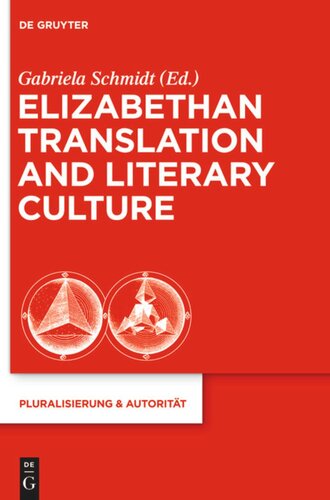

Most ebook files are in PDF format, so you can easily read them using various software such as Foxit Reader or directly on the Google Chrome browser.
Some ebook files are released by publishers in other formats such as .awz, .mobi, .epub, .fb2, etc. You may need to install specific software to read these formats on mobile/PC, such as Calibre.
Please read the tutorial at this link: https://ebookbell.com/faq
We offer FREE conversion to the popular formats you request; however, this may take some time. Therefore, right after payment, please email us, and we will try to provide the service as quickly as possible.
For some exceptional file formats or broken links (if any), please refrain from opening any disputes. Instead, email us first, and we will try to assist within a maximum of 6 hours.
EbookBell Team

4.8
14 reviewsReversing F. O. Matthiessen's famous description of translation as “an Elizabethan art”, Elizabethan literature may well be considered “an art of translation”. Amidst a climate of intense intercultural and intertextual exchange, the cultural figure of translatio studii had become a formative concept in most European vernacular writing of the period. However, due to the comparatively marginal status of English in European literary culture, it was above all translation in the literal sense that became the dominant mode of applying this concept in late 16th-century England. Translations into English were not only produced on an unprecedented scale, they also became a key site for critical debate where contemporary discussions about authorship, style, and the development of a specifically English literary identity converged. The essays in this volume set out to explore Elizabethan translation as a literary practice and as a crucial influence on English literature. They analyse the competitive balancing of voices and authorities found in these texts and examine the ways in which both translated models and English literary culture were creatively transformed in the process of appropriation.